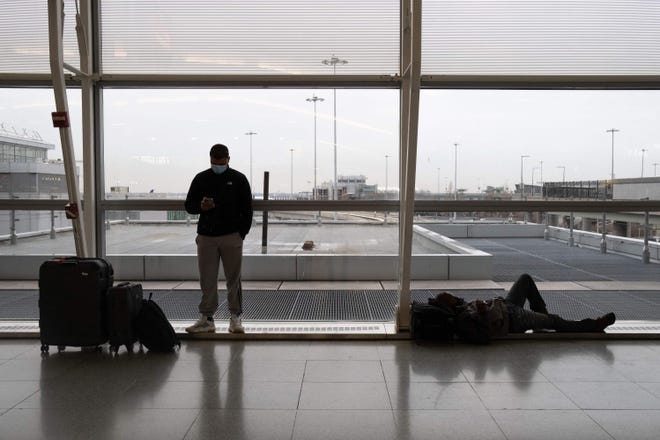
Germany added the United States to its "high-risk" area list and will soon tighten entry restrictions for unvaccinated travelers who had recently been in the U.S.
Starting Sunday, travelers who have recently spent time in the U.S. will need to be fully vaccinated or demonstrate an “important reason” for entering. Those who are unvaccinated or unable to show proof of recovery will need to self-isolate for 10 days upon arrival. The quarantine period can end on the fifth day with proof of a negative COVID-19 test.
Previously, unvaccinated travelers had to show a negative coronavirus test to enter Germany.
The change comes as the U.S. faces its fourth wave of COVID-19, driven by the highly contagious delta variant. The country reported more than 900,000 new COVID cases in the past week with nearly 52% of its population vaccinated, according to data from Johns Hopkins University and Medicine.

►COVID-19 and travel:Growing number of travelers cancel trips as COVID cases surge
►Is it safe to travel?:Some may be better off canceling plans during COVID-19 surge, experts say
Israel, Turkey and Vietnam and other countries were also added to Germany’s high-risk list, joining destinations like the United Kingdom, Spain, India and Mexico.
Germany has been open to tourists from the U.S. since June 20, shortly after the European Union added the United States to a list of countries it believed could see the gradual lifting of travel restrictions. The recommendation is not binding, and each country in the bloc can enforce its own travel restrictions.
The EU has yet to remove the U.S. from its safe travel list, despite the U.S. maintaining a travel ban on most European countries. Restrictions against the European Schengen area were first implemented in March 2020 and prevent travel to the U.S. for most people from:
- Austria
- Belgium
- Czech Republic
- Denmark
- Estonia
- Finland
- France
- Germany
- Greece
- Hungary
- Iceland
- Italy
- Latvia
- Liechtenstein
- Lithuania
- Luxembourg
- Malta
- Netherlands
- Norway
- Poland
- Portugal
- Slovakia
- Slovenia
- Spain
- Sweden
- Switzerland
- Monaco
- San Marino
- Vatican City
German Chancellor Angela Merkel pressed President Joe Biden on the travel ban during a meeting last month. Biden said at the time that his team was reviewing the travel restrictions, but no changes have been made.

“The administration certainly understands the importance of international travel,” Jeff Zients, White House COVID-19 response team coordinator, said during a press briefing last week. “(But given) the prevalence of the Delta variant, the United States will maintain the existing travel restrictions at this point.”
►US Travel ban:US intends to keep travel restrictions in place against UK, European countries, others
►Canceling or postponing a flight?:What to know about airline ticket policies
Follow USA TODAY reporter Bailey Schulz on Twitter: @bailey_schulz.







